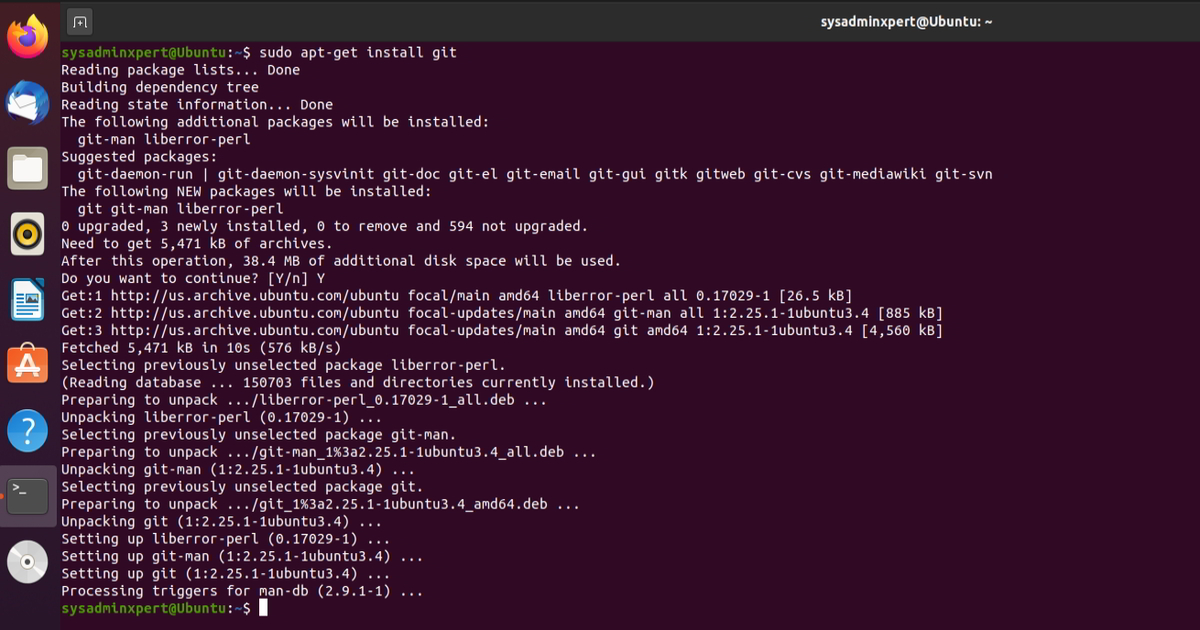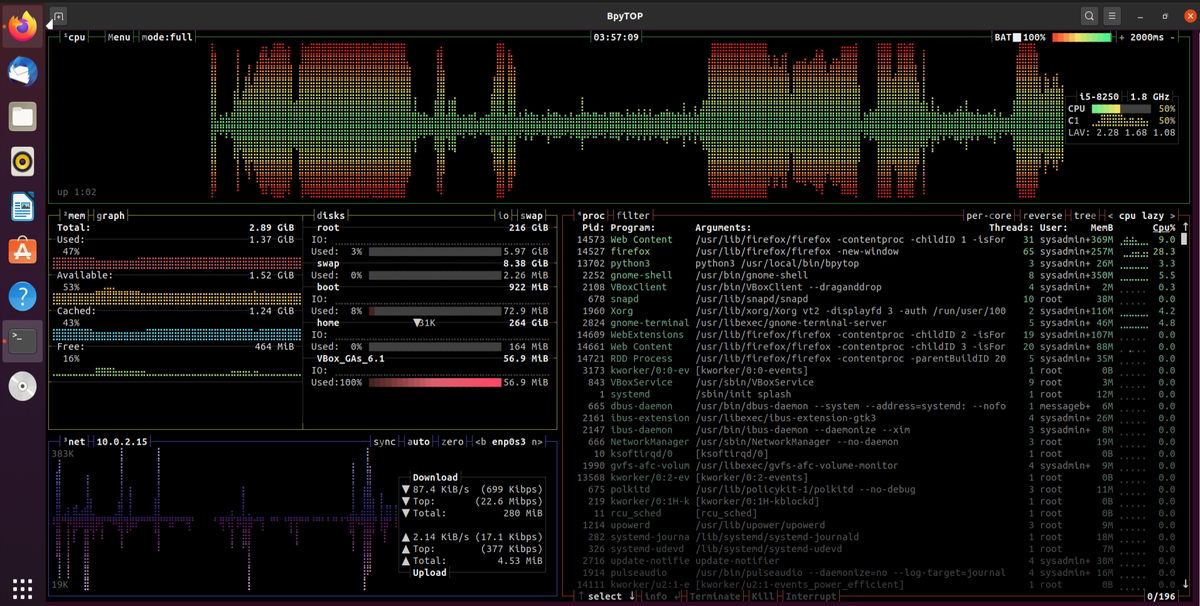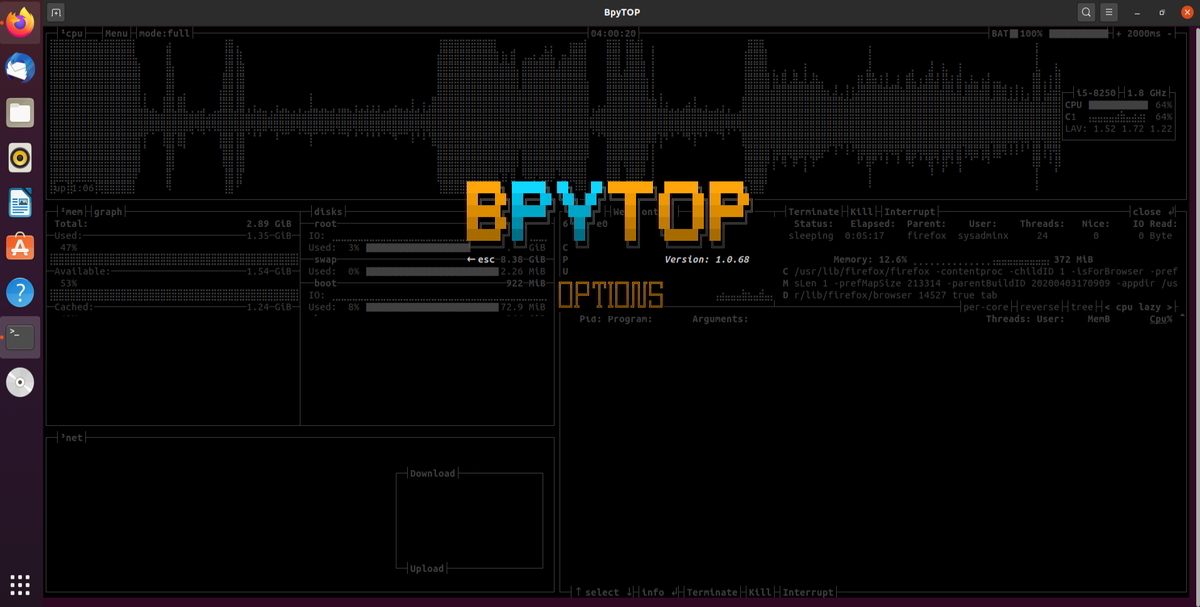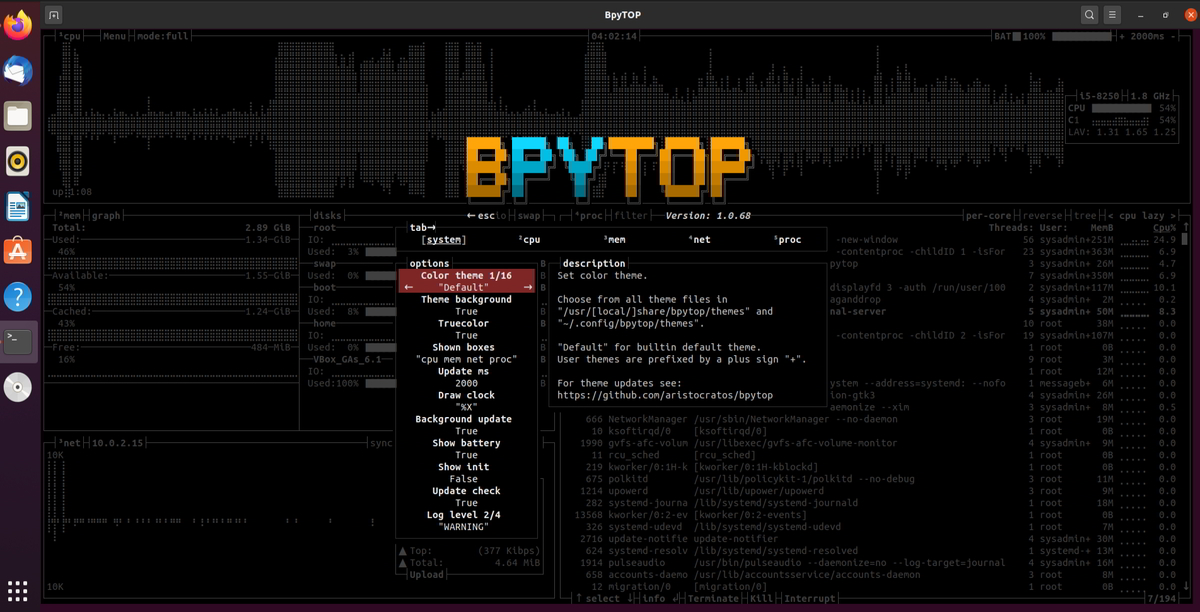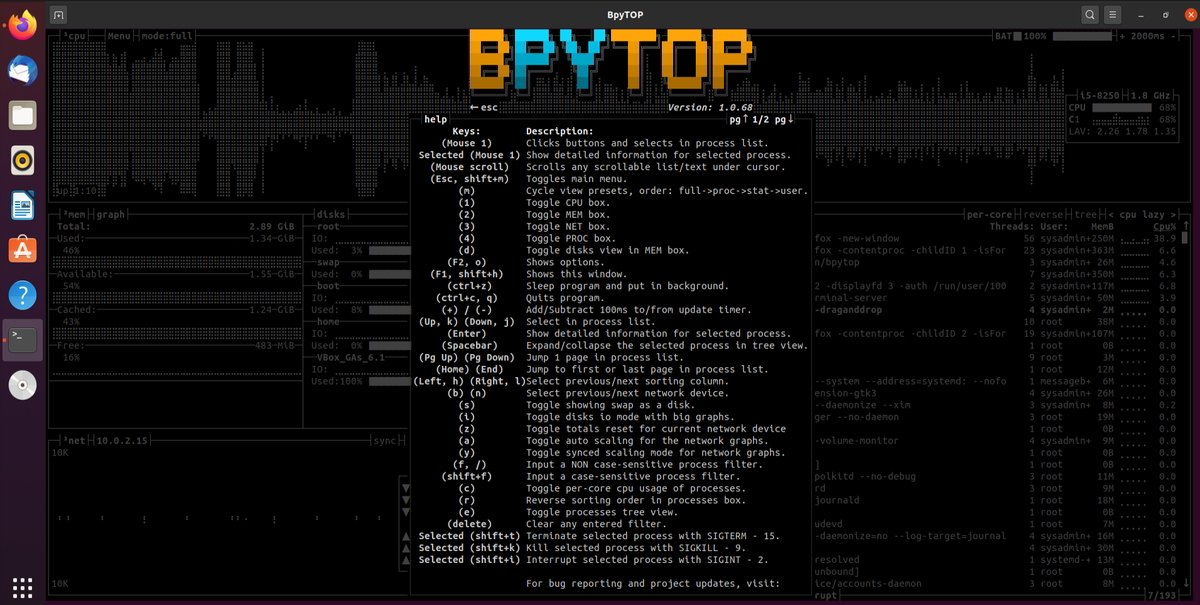In this article, we’ll show you how to install BpyTOP resource monitoring tool in Linux. Bpytop is a command-line utility like Top, htop, bashtop, etc. BpyTop is a resource monitoring tool for Linux that provides a real-time view of system resources such as CPU usage, memory usage, disk I/O, and network traffic. It is built using Python, allowing it to run in a terminal window.
Steps to Install BpyTop Resource Monitoring Tool in Linux using PIP
Install PIP Package Manager
For Debian/Ubuntu based:
$ sudo apt install python3-pip
For CentOS/RHEL based:
$ sudo yum install python-pip
For Fedora-based:
$ sudo dnf install python3
Install BpyTop on Ubuntu
$ sudo pip3 install bpytop
Sample Output:
sysadminxpert@Ubuntu:~$ sudo pip3 install bpytop Collecting bpytop Downloading bpytop-1.0.68-py3-none-any.whl (83 kB) |████████████████████████████████| 83 kB 287 kB/s Collecting psutil<6.0.0,>=5.7.0 Downloading psutil-5.9.1-cp38-cp38-manylinux_2_12_x86_64.manylinux2010_x86_64.manylinux_2_17_x86_64.manylinux2014_x86_64.whl (284 kB) |████████████████████████████████| 284 kB 140 kB/s Installing collected packages: psutil, bpytop Successfully installed bpytop-1.0.68 psutil-5.9.1 sysadminxpert@Ubuntu:~$
Steps to Install BpyTOP Using GIT Repository
Install git on Linux
$ sudo apt-get install git
Clone the package from GitHub
git clone https://github.com/aristocratos/bpytop.git
Install BPYTOP using the below command
$ cd bpytop $ sudo make install
Sample Output:
sysadminxpert@Ubuntu:~$ cd bpytop sysadminxpert@Ubuntu:/home/sysadminxpert/bpytop$ sudo make install sysadminxpert@Ubuntu:/home/sysadminxpert/bpytop$
Steps to Install BpyTOP Using Snap Store:
$ sudo snap install bpytop
$ sudo snap connect bpytop:mount-observe $ sudo snap connect bpytop:network-control $ sudo snap connect bpytop:hardware-observe $ sudo snap connect bpytop:system-observe $ sudo snap connect bpytop:process-control $ sudo snap connect bpytop:physical-memory-observe
Steps to install Install BpyTOP Using Package Manager
For Ubuntu/Debian based:
$ echo "deb http://packages.azlux.fr/debian/ buster main" | sudo tee /etc/apt/sources.list.d/azlux.list $ wget -qO - https://azlux.fr/repo.gpg.key | sudo apt-key add - $ sudo apt update $ sudo apt install bpytop
For Fedora and CentOS/RHEL based:
$ sudo yum install epel-release $ sudo yum install bpytop
How to use BpyTOP
Once installed, you can start BpyTop by running the following command:
$ bpytop
This will launch the BpyTop application in the terminal window. By default, it displays the CPU, memory, and disk I/O statistics in real-time. You can navigate through different sections of the application by using the arrow keys and pressing Enter to select a section.
Some of the key features of BpyTop include:
- Customizable layout and color schemes
- Support for multiple CPU cores and threads
- Real-time network traffic monitoring
- Process monitoring and management
- Support for exporting data in CSV and JSON formats
BpyTop is a powerful resource monitoring tool that can help you keep track of system performance and troubleshoot performance issues in real-time.
Press the “ESC” key to get more options:
BPYTOP Options:
BPYTOP Keys:
End of article. we have explained how to install BpyTOP resource monitoring tool in Linux.


